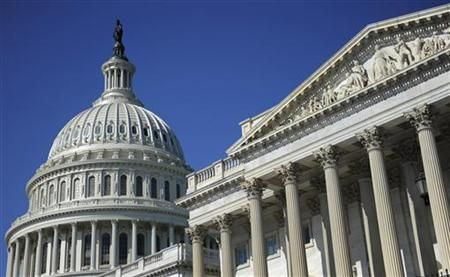Payroll-Tax Cut: Democrats, Republicans Nix Opposing Bills in Senate

Congress' ongoing battle over a proposed extension of the payroll-tax cut hit its first legislative wall on Thursday night, as two measures to keep the rate at least at 4.2 percent failed to overcome a filibuster in the Senate.
The competing bills, proposed by each party, sought to at the very least extend a payroll tax holiday for employers and employees, which is set to expire on Dec. 31. A bill initially introduced by Democrats aimed to reduce the rate to 3.1 percent did not overcome a 60-vote hurdle, with a finally tally of 51-49.
Republicans aimed to extend the current rate, but their bill was drubbed with a 78-20 tally, with many members of the caucus voting against the bill.
The contention over the issue lies how exactly it will be funded. Democrats proposed introducing a 3.25 percent tax on income over $1 million, which would affect about 350,000 people. Republicans vehemently opposed the measure, with the exception of U.S. Sen. Susan Collins, R-Maine.
GOP Bill Would Have Frozen Federal Employee Salaries
The GOP's bill would have extended the current rate through 2015, drawing funding from savings derived by a reduction of the federal workforce, diminished federal benefits for high-income Americans and continuing a wage freeze for federal employees.
Some Democrats voted against their party's bill, opposing a cut in funding in Social Security, which the tax feeds into.
At a time when our nation faces a death spiral of debt . . . it is the wrong policy, said Sen. Joe Manchin, D-W.Va., in a statement. It is wrong for our seniors and it is wrong for our future, and I will not vote for it. Period.
Democrats have used their bill as a chance to portray Republicans as willing to hurt the middle class while protecting the rich. President Barack Obama originally proposed the tax reduction and marginal increase as part of his jobs act.
Tonight, Senate Republicans chose to raise taxes on nearly 160 million hard-working Americans because they refused to ask a few hundred thousand millionaires and billionaires to pay their fair share, he said in a statement after the first Senate vote.
According to The Washington Post, despite the failed measures, bipartisan talks are trying to find common ground on an extension of the current rate, as well as extending unemployment benefits and pushing back a drop in Medicare reimbursements for doctors.
If Congress does not reach an accord on the payroll tax, middle income tax payers would feel a significant impact, according to CNN Money.
Incomes of up to $35,000 could see their taxes increase by as much as $700. The payout to the IRS does not continue to grow at the same rate as income, as you slide up the scale. Earners of $110,000 and up will pay $2,341.
© Copyright IBTimes 2025. All rights reserved.





















